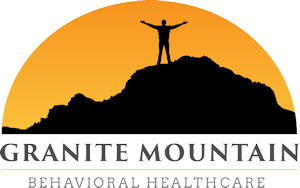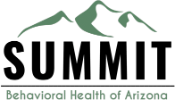For anyone battling addiction, the fear of relapse can be a daily struggle. However, with the right tools and strategies in place, it’s possible to navigate the journey to recovery more confidently.
One crucial aspect of this journey is actively engaging in relapse prevention activities. These activities serve as a buffer against the temptations and triggers that can lead to a setback.
Top 10 Relapse Prevention Activities:
Practicing mindfulness and meditation techniques can help individuals develop greater self-awareness and emotional regulation. By learning to observe their thoughts and feelings without judgment, individuals can better manage cravings and navigate challenging situations without turning to substances.
Engaging in regular physical activity not only boosts mood and improves overall health, but also helps reduce stress and anxiety — common triggers for relapse. Whether it’s going for a run, hitting the gym, or practicing yoga, finding an exercise routine that suits one’s preferences can be a powerful tool in maintaining sobriety.
Adopting a healthy lifestyle that includes nutritious eating, adequate sleep, and avoiding harmful substances can significantly support recovery efforts. Fueling the body with nourishing foods and prioritizing restorative sleep can enhance physical and mental well-being, making it easier to resist cravings.
Connecting with others who understand the challenges of addiction can provide invaluable support and encouragement. Whether through support groups like Alcoholics Anonymous or individual therapy sessions, seeking professional help and building a strong support network can bolster one’s resolve to stay sober.
Learning healthy coping mechanisms for managing stress, cravings, and negative emotions is essential for long-term recovery. Techniques such as deep breathing exercises, journaling, and practicing gratitude can help individuals navigate triggers and setbacks more effectively.
Establishing clear boundaries with oneself and others is crucial for maintaining sobriety. This may involve avoiding people, places, or situations associated with substance use and learning to assertively communicate one’s needs and limits.
Developing a comprehensive relapse prevention plan with specific strategies for handling triggers, coping with cravings, and seeking support can empower individuals to stay on track with their recovery goals. Having a written plan in place can serve as a roadmap during challenging times.
Finding purpose and fulfillment in activities that align with one’s values and interests can provide a sense of meaning and satisfaction that reduces the desire to turn to substances. Whether it’s pursuing hobbies, volunteering, or spending time with loved ones, engaging in meaningful activities can enrich one’s life in recovery.
Knowledge is a powerful tool in the fight against addiction. Taking the time to educate oneself about the nature of addiction, its effects on the brain and body, and the various treatment options available can empower individuals to make informed decisions about their recovery journey.
Recovery is a journey filled with ups and downs, and it’s essential to treat oneself with kindness and understanding along the way. Practicing self-compassion involves recognizing and accepting one’s imperfections and mistakes without judgment, allowing for growth and resilience in the face of challenges.
Main Causes of Relapse:
Understanding the main causes of relapse is crucial for developing effective relapse prevention strategies. While the specific triggers may vary from person to person, some common factors that can contribute to relapse include:
- Stress: High levels of stress can weaken one’s resolve and make it more challenging to cope with cravings and triggers.
- Negative Emotions: Feelings of acute depression, anxiety, anger, or loneliness can increase the vulnerability to relapse if not addressed effectively.
- Social Pressure: Peer pressure or social situations where substance use is prevalent can undermine one’s commitment to sobriety.
- Overconfidence: Becoming complacent or overconfident in one’s ability to resist temptation can lead to a lapse in judgment and eventual relapse.
- Lack of Support: Isolation or a lack of supportive relationships can leave individuals feeling vulnerable and disconnected, increasing the risk of relapse.
- Unresolved Trauma: Past traumas or unresolved emotional wounds can fuel the desire to numb pain through substance use, making it difficult to maintain sobriety.
- Environmental Triggers: Exposure to familiar environments, people, or objects associated with past substance use can trigger cravings and lead to relapse.
- Poor Self-Care: Neglecting physical and emotional needs, such as inadequate sleep, poor nutrition, or lack of self-care practices, can undermine one’s resilience to triggers and cravings.
Signs of an Impending Relapse:
Recognizing the warning signs of an impending relapse is crucial for taking proactive steps to prevent it. Some common signs to watch out for include:
Intense or persistent cravings for drugs or alcohol may indicate that one’s resolve is weakening.
Sudden changes in mood, such as irritability, anxiety, or depression, may signal emotional distress and vulnerability to relapse.
Withdrawing from social interactions and support systems may indicate feelings of shame, guilt, or the desire to relapse in private.
Disregarding personal hygiene, skipping meals, or neglecting responsibilities may suggest a decline in overall well-being and resilience.
Justifying or rationalizing the idea of using drugs or alcohol, such as telling oneself “just this once won’t hurt,” is a common warning sign of relapse.
Reverting to old patterns of behavior, such as spending time with former friends or visiting familiar places associated with substance use, increases the risk of relapse.
Avoiding accountability or making excuses for behavior may indicate a reluctance to confront the reality of relapse.
How to Prevent a Relapse
Preventing a relapse requires both a dedicated and proactive approach to maintaining sobriety. Here are some essential steps to help safeguard against relapse:
- Stay Connected: Maintain regular contact with your support network, whether it’s through attending support group meetings, reaching out to friends and family, or scheduling regular check-ins with a therapist or counselor. Connection and accountability are vital pillars of relapse prevention.
- Practice Self-Care: Prioritize your physical, emotional, and mental well-being by adopting healthy lifestyle habits. This includes getting enough sleep, eating nutritious foods, exercising regularly, and engaging in activities that promote relaxation and stress relief.
- Identify Triggers: Take time to identify the people, places, emotions, and situations that trigger cravings or temptations to use substances. Once you’ve identified your triggers, develop strategies for avoiding or coping with them effectively.
- Develop Coping Skills: Learn and practice healthy coping mechanisms for managing stress, cravings, and negative emotions. This could include deep breathing exercises, mindfulness, meditation, journaling, or engaging in hobbies and activities that bring you joy and fulfillment.
- Stay Mindful: Cultivate mindfulness and self-awareness to recognize the early warning signs of relapse, such as negative thinking patterns, increased stress, or changes in behavior. By staying present and attuned to your thoughts and emotions, you can intervene before a relapse occurs.
- Seek Professional Help: Don’t hesitate to reach out for professional help if you’re struggling to maintain sobriety or if you’re experiencing persistent cravings or emotional distress. Therapists, counselors, and addiction specialists can provide personalized support and guidance to help you stay on track.
By implementing these strategies and remaining committed to your recovery journey, you can significantly reduce the risk of relapse and build a fulfilling, substance-free life. Remember that relapse is not a sign of failure but an opportunity to learn and grow stronger in your recovery.
When to Seek Outside Help
Knowing when to seek outside help is essential for addressing potential relapse risks effectively. It’s crucial to reach out for support if:
If cravings for drugs or alcohol become overwhelming and difficult to manage on one’s own, it’s essential to seek professional guidance and support.
If feelings of depression, anxiety, or other emotional distress persist despite efforts to cope, it may be necessary to seek therapy or counseling.
If feelings of isolation or a feeling of no support are exacerbating the risk of relapse, reaching out to friends, family, or support groups can provide much-needed comfort.
If neglecting self-care habits, such as sleep, nutrition, or exercise, is undermining one’s ability to cope with triggers and cravings, it may be time to prioritize self-care and seek professional guidance.
If warning signs of relapse are present, such as increased cravings, mood swings, or returning to old habits, it’s crucial to take proactive steps to prevent relapse and seek support from trusted individuals or professionals.

Relapse prevention activities are indispensable tools on the path to long-term recovery from addiction. By embracing mindfulness, adopting healthy habits, nurturing support networks, and implementing proactive strategies, individuals can build resilience against relapse.
Work to Prevent Relapse at Granite Mountain
Recognizing the triggers and understanding the root causes of relapse are important pieces of a strong relapse prevention plan. However, there are times when additional support is necessary. If you or someone you know is struggling with addiction, don’t hesitate to reach out to Granite Mountain Behavioral Healthcare for professional assistance. With our expertise and personalized approach to treatment, we can guide you towards a healthier, substance-free life. Contact us today to take the first step towards lasting recovery.



